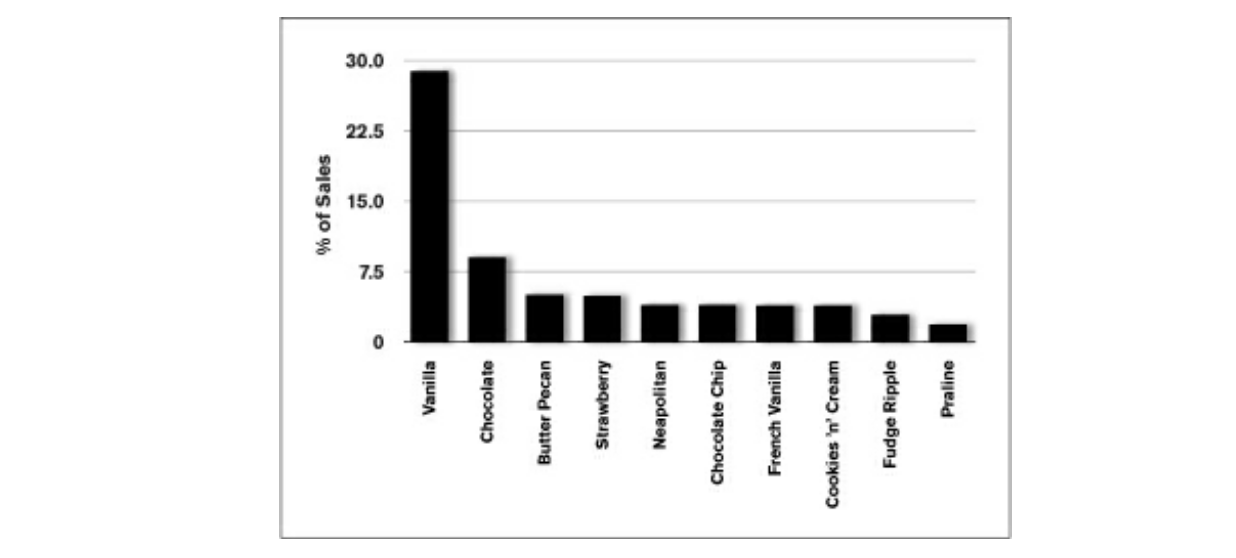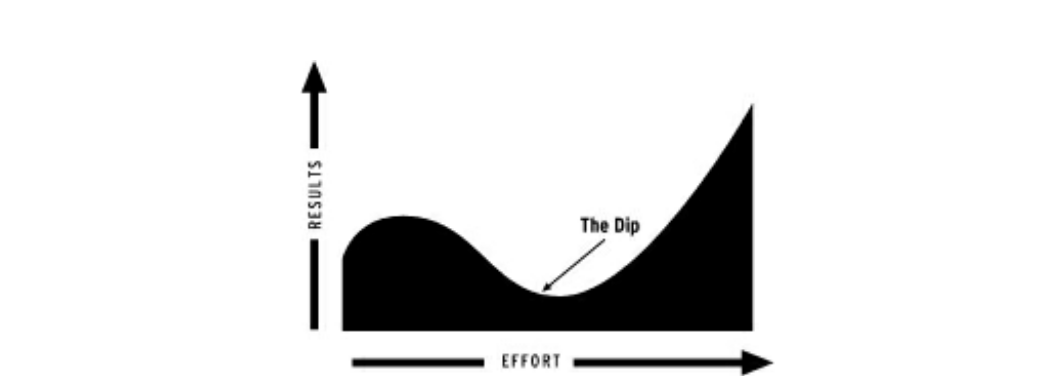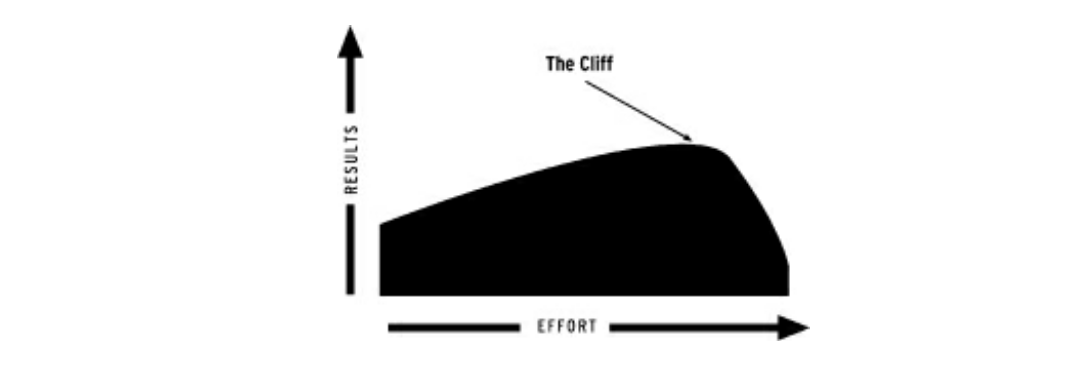Being the Best in the World is Seriously Underrated
"Quitters never win and winners never quit" is a bad advice. Winners quit all the time. They just quit the right stuff at the right time.
Most people quit, they just don't quit successfully. If you learn about the systems that encourages quitting, you most likely to be able to beat them.
The Best in the World: Hannah Smith
Last year, 42K people graduated from the law schools in US but only 37 of them were awarded Supreme Court clerkships. The difference between is knowing then to quit, or accepting the mediocrity. Hannah Smith is one of those clerks, who is also a quitter. She quit countless of other pursuits in order to get here.
The Surprising Value of Being the Best in the World
The rewards are heavily skewed, #1 get ten times benefit of #10, and a hundred times benefit of #100.
Ice cream flavor popularity graph:

It's called the Zipf's law, and it applies to resumes and college application rates and best-selling records and everything in between. Winners win big because the marketplace loves a winner.
Scarcity also makes being at the top worth something.
The Best in the World?
Anyone who is going to hire you, buy from you, recommend you, vote for you, or do what you want them to do is going to wonder if they're the best choice.
Best as in: best for them, right now, based on what they believe and what they know
The mass market is dying, there is no longer the best song, best coffee. Now there are a million of micro-markets, but each micro-market still has its best.
The Biggest Mistake They Made in Scool
Start from the easier questions, skip the ones you don't know. But the winners are the people who can actually solve the questions they don't know.
The Magic of Thinking Quit
CURVE 1: THE DIP
At the beginning, it's interesting and you enjoy while getting the results. Then the Dip happens, which is the long slog between starting and mastery.

CURVE 2: THE CUL-DE-SAC — DEAD END
It is so simple and doesn't even need a chart. It's the situation where we work but nothing changes. It doesn't get a lot better, it doesn't get a lot worse. It just is. We need to get out of it fast, because the Cul-de-Sac has a big opportunity cost.
CURVE 3: THE CLIFF
The situation where you can't quit until you fall off, and the whole thing falls apart.

Seven Reasons You Might Fail to Become the Best in the World
- You run out of time, and quit
- You run out of money, and quit
- You get scared, and quit
- You're not serious about it, and quit
- You lose interest or enthusiasm or settle for being mediocre, and quit
- You focus on the short term instead of the long, and quit when the short therm gets too hard
- You pick the wrong thing at which to be the best in the world, because you don't have the talent
Eight Dip Curves
Manufacturing Dip
It's easy and fun to start building something in your garage, but hard to scale it for mass production.
Sales Dip
Starting with small, one seller (you) is fine, but the dip hits when you need to upgrade to a professional seller fource and scale it up.
Education Dip
When it's time to learn something new, to reinvent and rebuild the skills. Like a doctor who sacrifices a year of her life for a specialty, and gets the reward for decades afterward.
Risk Dip
Taking risk to get through the dip vs crashing.
Relationship Dip
You get into the dip but cannot pass through because lack of relationship building in the past.
Conceptual Dip
Re-inventing the situations by changing the assumptions that you've gotten with so far.
Ego Dip
You can't pass through because you can't give up the control of the spotlight.
Distribution Dip
Everyone can sell through the web, but getting into Walmart is hard.
The Big Opportunity
If you can get through the Dip, if you can keep going when the system is expecting you to stop, you will achieve extraordinary results. People who make it through the Dip are scarce indeed, so they generate more value.
Average is for Losers
The next time you catch yourself being average when you feel like quitting, realize that you have only two choices: be exceptional or be average.
Serial Quitters Spend a Lot of Time in Line
Switching cash registry line example from the supermarket. You change your line, and there is another free. You switch to that one but then there is another...
The sad news is that when you start over, you get very little credit for how long you stood in line with your last great venture.
Facing the Dip
It's easy to be seduced by the new money and the rush to the fresh. The problem is that this leads to both an addiction and a very short attention span. If it doesn't work today, the thinking goes, why should I wait around until tomorrow? The problem is that only a tiny portion of the audience is looking for the brand-new thing. Most people are waiting for the tested, the authenticated, and the proven
Quitting in the Dip Is Usually a Short-term Decision—and a Bad One
Short-term pain has more impact on most people than long-term benefits do, which is why it's so important for us to amplify the long-term benefits of not quitting. Think about the gains you'd get along the way. It's easier to stick out a lousy class if you can picture the graduation day.
No one Quit the Boston Marathon at Mile 25
The drop out usually happens at the beginning, people has higher resistance through the end of the tunnel. We should be able to predict what would happen if we go till there though.
If it's a dead-end, every day you stay is a bad strategic decision for your career because every day you get better at something that isn't useful—and you are another day behind others who are learning something more useful. The only reason to stay is the short-term pain associated with quitting.
If You're Not Going to Get to #1, You Might as Well Quit Now
Quitting as an Intelligent Strategy
Time to to look for a new job is when you don't need one. The time to switch jobs is before it feels comfortable. Go, switch, challenge yourself.
"Never Quit"
"Never quit" is a bad advice, "Never quit something with great long-term potential just because you can't deal with the stress of the moment" is a good advice.
Three Questions to Ask Before Quitting
AM I PANICKING?
Quitting is not same as panicking, panic is never premeditated. Quitting when you're in panicked is dangerous and expensive, compared to having a proper plan what to do after you quit.
WHO AM I TRYING TO INFLUENCE?
If you are considering to quit, it's almost certainly because you're not being successful at your current attempt at influence. One person behaves different than the market, it would be harder to influence it since most of the times you need to convince first.
WHAT SORT OF MEASURABLE PROCESS AM I MAKING?
Relationships, jobs or tasks have three states:
- moving forward
- falling behind
- standing still
To succeed, we should be in the first one, even though it's small steps, but should contribute to the process so we'd know it's not waste.
Quitting Before You Start
Write down under what circumstances you're willing to quit, and when.
And then, stick with it.
